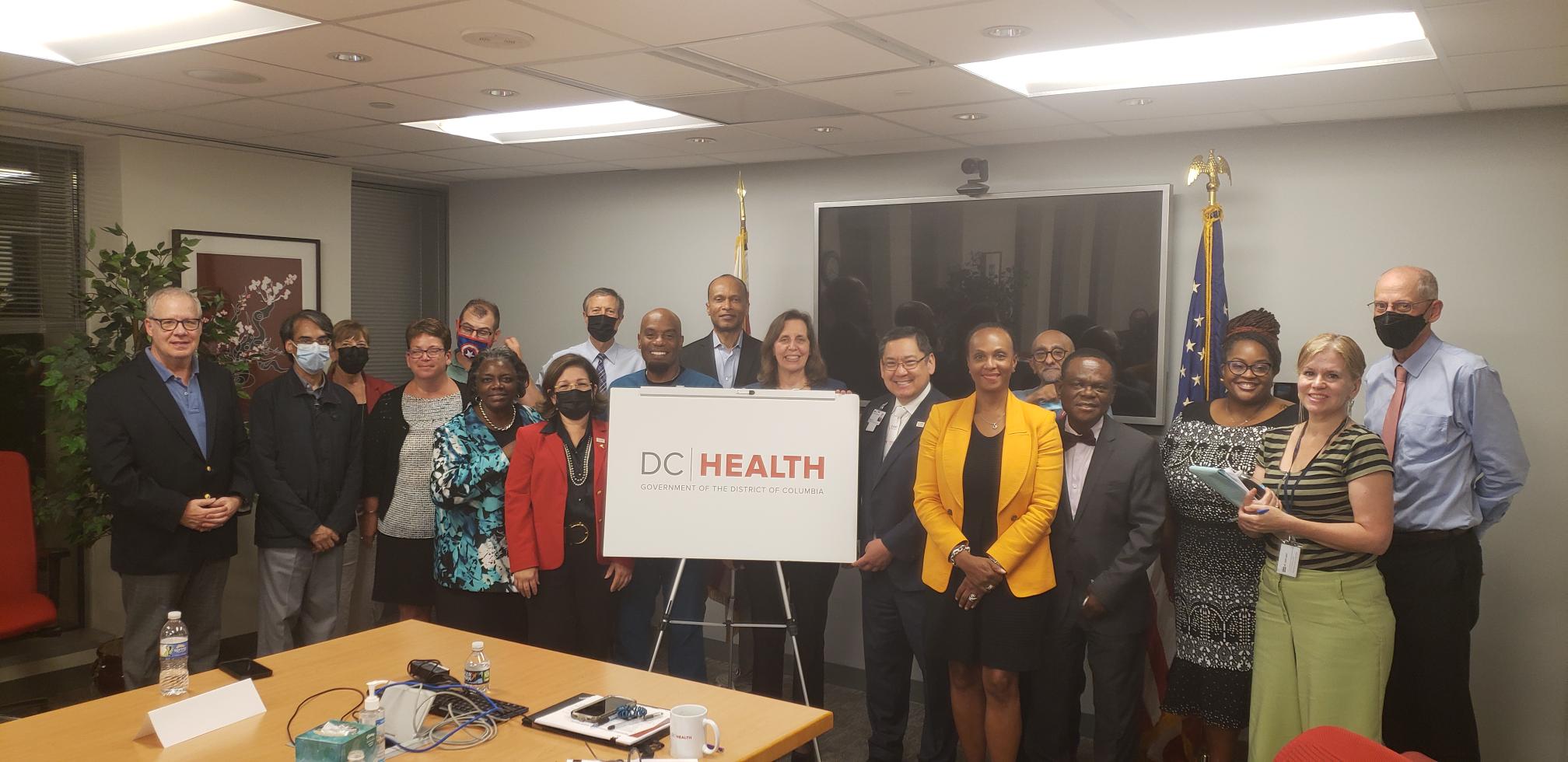Behavioral Health

Behavioral health is a major public health issue in the District of Columbia. Sadly, many of the legislative and regulatory initiatives around behavioral health are tied to other public health concerns, such as opioid addiction, maternal mortality, and health equity.
In partnership with the Washington Psychiatric Society, AMA, and American Psychiatric Association (APA), MSDC works to ensure that patients receive appropriate support for behavioral health issues, that the practice of psychiatry is supported in the District, and that psychiatrists are available to patients in the District.
MSDC was a proud supporter of the Behavioral Health Parity Act of 2017, which enshrined into law that all health plans offered by an insurance carrier meet federal requirements of the Wellstone/Domenici Mental Health Parity and Addiction Equity Act of 2008.
MSDC Statements and Testimony of Behavioral Health Issues
25th Council period information coming soon
MSDC and DC Health Recognize a Strong and Enduring Partnership

Last night, MSDC held its September Board Meeting at DC Health Headquarters at 899 N Capitol St NE, Washington, DC. In attendance were many DC Health leadership staff and MSDC Board of Director members. This is MSDC’s final board meeting before the new leadership is announced and installed at the 2022 Annual Meeting next month.
MSDC Board Chair Dr. J. Desiree Pineda kicked off the meeting, recognizing the strong working relationship between MSDC and DC Health. Most notably, MSDC and DC Health co-hosted a webinar on medical license renewal in DC at the beginning of September. In addition, MSDC members have provided physician input to DC Health and the Board of Medicine on multiple topics. These include public health and licensure issues, such as minor consent for vaccination, maternal health, and interstate licensure.
DC Health Interim Director Sharon Lewis, DHA, discussed updates from DC Health including:
- DC Health's priority to make the District the healthiest place to live in the US
- Upcoming changes to the boards of licensing
- The District's national recognition for its public health responses to COVID-19 and monkeypox
- Concerns over childhood vaccinations and efforts to address vaccinations in school age children
- Changes and updates to the medical license process
- and more.
MSDC’s Board meeting continued with a full agenda covering many items. Among them were:
- As the 24th DC Council period heads into its final months, MSDC is vigorously pursuing its advocacy priorities. This includes legislation addressing reproductive health, copay accumulators, prior authorization, health equity, and more. To raise awareness and help legislation move forward, MSDC and its partners are conducting a Day of Action on September 20.
- The MSDC 2022 Annual Meeting is taking place on Friday, October 28, both in-person at the AIA Event Center near the White House and virtually. This marks MSDC’s 205th anniversary since its founding in 1817.
- UnitedHealthcare, an MSDC Corporate Partner, provided an overview of its Medicare/Medicaid dual-eligible program. See here for an overview of the program.
- MSDC reported on its participation on the Mayor’s Healthcare Workforce Task Force, in which MSDC assists the Administration in sustaining the District’s healthcare workforce.
- The MSDC Board recognized Dr. Laurie Duncan who is rolling off the Board of Directors in October. She has served MSDC in many capacities including her tenure as Secretary, Chair of the Bylaws Task Force, and member of the Physician Health Committee.
Sample of Legislation MSDC is Tracking in Behavioral Health
(see the whole list of bills here)
What does it do? The bill requires licensed health providers to complete 2 hours of CME on suicide prevention, assessment, and screening.
MSDC position: MSDC opposes the bill as written as the language does not encourage physician wellbeing or sufficient awareness of suicide prevention.
Current status: The bill had a hearing with the Committee on Health on June 10.
